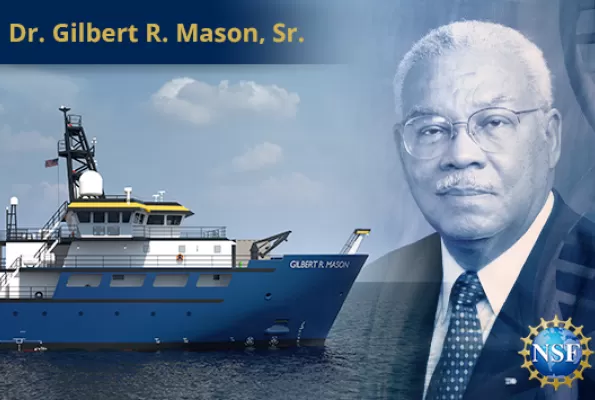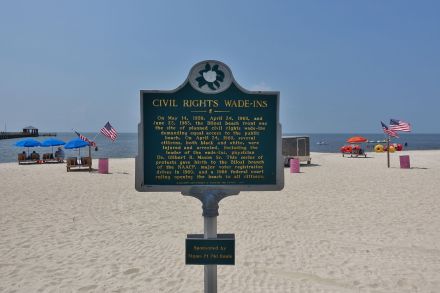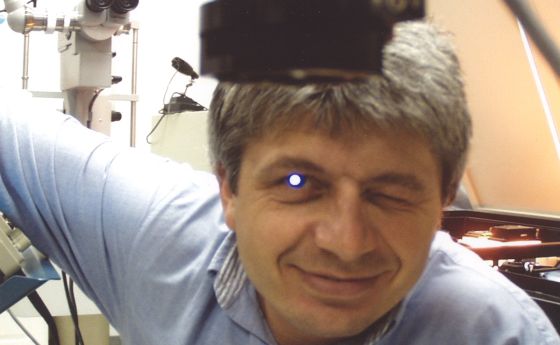
The Gilbert R. Mason research vessel: Honoring a civil rights hero
A U.S. National Science Foundation ocean research vessel under construction will be named R/V Gilbert R. Mason in honor of the education and civil rights legacy of the famous activist and his family. Gilbert R. Mason Sr. was a lifelong champion of the ocean and was well known for advocating for equal access to beaches in coastal Mississippi and for pioneering leadership of nonviolent civil disobedience in the Deep South. His son, Gilbert R. Mason Jr., was also involved in the civil rights movement.
In 1959, Mason Sr. organized one of the first nonviolent protests in Mississippi -- advocating for desegregation of beaches in a series of three wade-ins. He dedicated the rest of his life to advocating for equal access to education, health care and the beach and sea.
"The ship's name embodies the aspiration for societally relevant science to be carried out on the ship and our lasting commitment to creating access to marine science to all who seek to enter the field or benefit from our work," said Leila Hamdan, associate director for the University of Southern Mississippi's School of Ocean Science and Engineering. "For me, this is not just the name of the ship -- it is our true north."
The ship's motto, "aequa mari," (Latin for "equal access to the sea") pays homage to Mason Sr.'s life's work and legacy and to the Masons' home state of Mississippi, which is one of the two home ports for the vessel, which historically has been a major access route from the U.S. interior to the ocean.
The ship will be completed in 2024 and will conduct geological, oceanographic and marine biological research in the Gulf of Mexico, the Caribbean and the Atlantic Ocean. The vessel will be 199 feet long by 41 feet wide and capable of taking a crew of 13 and up to 16 scientists to sea for three weeks, traveling up to 5,400 nautical miles.
The R/V Gilbert R. Mason will carry on-board laboratories and sensors for mapping the seafloor. The vessel will also be equipped with advanced telepresence capabilities that enable land-based scientists to engage in projects with researchers on board and provide opportunities for the public, including students, to experience life on board a research ship.
Leila Hamdan explains how researchers would use the model to plan scientific expeditions.
The vessel will be managed by the Gulf-Caribbean Oceanographic Consortium, which is led by the Louisiana Universities Marine Consortium and the University of Southern Mississippi, where members of the Mason family have taught and participated in marine education programs through USM's Gulf Coast Research Laboratory.
Only three dedicated ocean research vessels in the U.S. have been named after people of color: NSF's new vessel R/V Gilbert R. Mason; the U.S. Coast Guard's icebreaker Healy, named after Capt. Michael A. Healy, the first Black officer to command a U.S. government vessel; and the U.S. Navy's oceanographic survey vessel USNS Henson, named for Arctic explorer Matthew Henson.
Terrence Quinn, NSF's Division Director of Ocean Sciences added, "Commemorating Dr. Mason's life and achievements will be a good reminder that this NSF-owned research vessel will not only open the waters to further discovery but will also open opportunities for a wide range of researchers."






